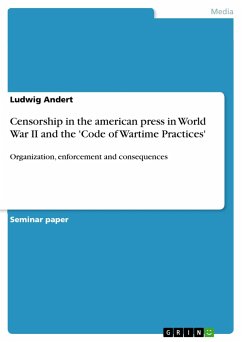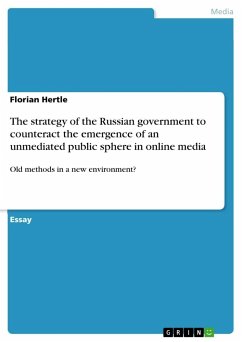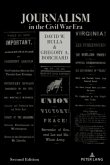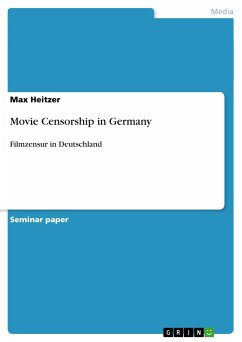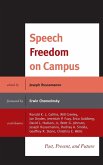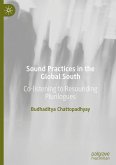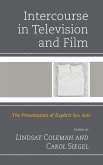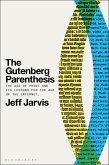Seminar paper from the year 2007 in the subject Communications - Media and Politics, Politic Communications, grade: 1,3, University of Siegen, course: Censorship - Concept & Case Studies, language: English, abstract: On June 25th, 1943, American press editors received a confidential note, the contents an purpose of which was hard to understand even for those who were familiar with the technical terms. It said: "[...] you are asked not to publish or broadcast any information whatever regarding war experiments involving: Production or utilization of atom smashing, atomic energy, atomic fission, atomic splitting, or any of their equivalents. The use for military purposes of radium or radioactive materials, heavy water, high voltage discharge equipment, cyclotrons. The following elements or any of their compounds: polonium, uranium, ytterbium, hafnium, protactinium, radium, rhenium, thorium, deuterium." What sounded "like Greek" to the selected adressees of the request, in retrospective can be identified even by an amateur as the attempt to hide evidence that the US government was doing research on a nuclear device. It was about to play a decisive role in the ending of the Pacific War. Since the United States' entry in World War II, domestic censorship had to draw a line very carefully: On the one hand, the First Amendment to the Constitution grands the freedom of speech and the press; on the other hand, sensitive information, if revealed to the public, could fall into the hands of enemy agents. To handle this task, the government set in effect a voluntary censorship, building up on every journalist's patriotic instinct not to publish anything that might be a threat to the war effort. How was censorship organized? What kind of information was censored? Is there an actual difference between voluntary and mandatory censorship? These are questions the following research paper will elaborate on. A brief overview of the practices of censorship in times of war will accompany the analysis. Finally, the text makes an attempt to answer the question how the United States "survived" the censorship period and how it affected further censorship strategies. An important source for this paper is the book "Secrets of Victory. The Office of Censorship and the American Press and Radio in World War II" by Michael S. Sweeney, that has been published in 2001. Censorship of the press during war is common to many countries and has been used for strategic ends in many periods of time. A characteristic for modern wars in particular is a "difference of interest", with journalists torn between their task to report "as truthfully as possible" and a responsibility not to help the enemy.
Hinweis: Dieser Artikel kann nur an eine deutsche Lieferadresse ausgeliefert werden.
Hinweis: Dieser Artikel kann nur an eine deutsche Lieferadresse ausgeliefert werden.

